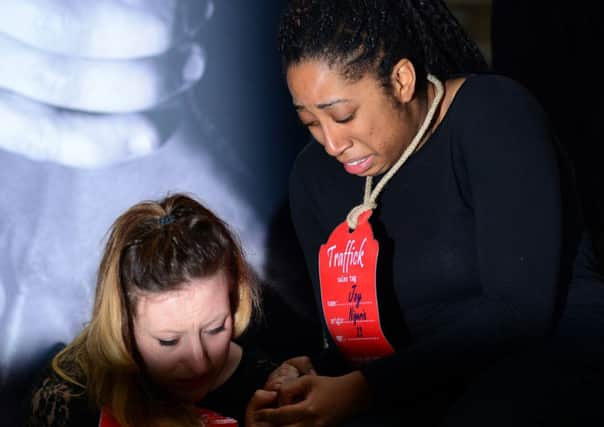Work still needed on ‘landmark’ modern slavery legislation, says top academic


The Modern Slavery Act, passed into law this week, is the first of its kind in Europe to specifically address slavery and trafficking in the 21st century.
It includes what the Government says is a “world leading provision” that requires business to disclose what they are doing to ensure there is no slavery in their supply chain.
Advertisement
Hide AdAdvertisement
Hide AdThe Act strengthens enforcement powers, increases the maximum sentence for serious offences from 14 years to life in prison, and provides more protection and support for victims.
Professor Gary Craig, a founding Fellow at the Wilberforce Institute in Hull, said the result was “not wholly satisfactory but at leads raises the profile of the issue”.
The co-author of a major study on forced labour, who is also a member of North Yorkshire’s police and crime panel, said he feared only very large companies would be required to make disclosures.
He said: “I am pleased there is an Act and that there are some gains but there are a few things that are needed which aren’t included in the Act.
Advertisement
Hide AdAdvertisement
Hide Ad“I am anxious about the processes and structures that might now be put in place. We don’t know what the supply chain clause is going to look like. There is the question of the threshold over which companies will be required to report.
“Our fear is that it will only get to very large companies. We would like the threshold to be pushed down to companies with turnover or £36 million annual turnover.”
Earlier this week, peers rejected by 285 votes to 196 a move to provide further protection for overseas domestic workers, clearing the way for the Modern Slavery Bill to gain royal assent.
Radio and television documentaries and several reports have found that some workers brought to the UK as gardeners, cooks, cleaners or nannies face extremely long hours, punishment and low pay, with some not given a bed or regular food.
Advertisement
Hide AdAdvertisement
Hide AdHome Secretary Theresa May said the legislation was “an historic milestone”. She added: “This landmark legislation sends the strongest possible signal to criminals that if you are involved in this vile trade you will be arrested, you will be prosecuted and you will be locked up.
“Our work is far from over, and everyone in all sectors of society must play their part. But we as a nation can be proud that today we are closer to consigning slavery to the history books where it belongs.”